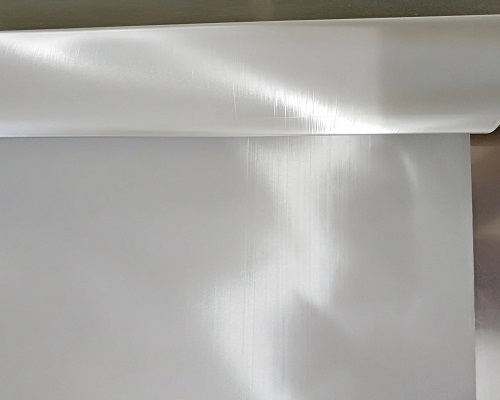Nickel Wire Mesh: A Versatile Solution for Multiple Applications
Nickel wire mesh is a highly durable and versatile material, widely used in various industries due to its unique properties. Composed primarily of nickel, this wire mesh offers excellent resistance to corrosion, high temperatures, and chemical reactions, making it an ideal choice for demanding applications. From filtration systems to aerospace and electronics, nickel wire mesh has proven its utility in both commercial and industrial settings.
Properties of Nickel Wire Mesh
Nickel, as a metal, is known for its exceptional strength and resistance to oxidation, even in harsh environments. When woven into a mesh, nickel's properties become even more beneficial, particularly in industries where reliability and longevity are critical. Some of the primary characteristics of nickel wire mesh include:
Corrosion Resistance: Nickel wire mesh excels in environments where corrosion is a concern, such as marine applications or chemical processing plants. Its ability to withstand moisture and corrosive chemicals makes it a reliable option in these settings.
High-Temperature Tolerance: Withstanding extreme heat is another notable advantage of nickel wire mesh. It can function effectively in temperatures ranging from ambient to several hundred degrees Celsius without losing strength or structural integrity. This is especially useful in industries like aerospace, where components often encounter high-temperature conditions.
Conductivity: Nickel wire mesh is an excellent conductor of electricity, making it a preferred material in electronics, batteries, and other applications that require efficient electrical conductivity.
Strength and Durability: Its durability allows nickel wire mesh to be used in situations where strength is necessary, such as structural applications or industrial filtration.
Applications of Nickel Wire Mesh
Due to its impressive properties, nickel wire mesh is used across a broad spectrum of industries. Below are some of the most common applications:
Filtration Systems
Nickel wire mesh is widely used in filtration systems, especially in industries such as pharmaceuticals, food and beverage, and chemical processing. Its corrosion resistance and ability to withstand harsh chemicals make it a dependable material for filtering liquids and gases in highly corrosive environments. The mesh's varying weave patterns can be tailored to meet specific filtration needs, providing fine filtration in some cases and coarser filtration in others.
Electronics and Battery Manufacturing
Nickel's excellent conductivity makes nickel wire mesh a popular choice in the electronics industry. It is used in battery production, particularly in the manufacturing of rechargeable batteries, such as nickel-cadmium and nickel-metal hydride batteries. The mesh serves as an efficient conductor within the battery, helping to improve its overall performance and lifespan.
Aerospace Industry
In aerospace applications, nickel wire mesh is used for its heat resistance and durability. Aerospace components often encounter extreme temperatures, and nickel wire mesh is used in parts such as heat shields, exhaust systems, and other components where high temperatures are common. Its ability to maintain structural integrity in such conditions is vital for safety and performance.
Catalysts in Chemical Processing
Nickel wire mesh serves as a catalyst in certain chemical reactions, particularly in hydrogenation processes. The mesh provides a large surface area for reactions to take place, improving the efficiency and speed of the process. This is commonly seen in chemical and petrochemical industries, where nickel wire mesh is a key component in reaction chambers.
Automotive Industry
Inconel wire mesh is also utilized in the automotive sector, particularly in exhaust systems, due to its heat and corrosion resistance. It is used in catalytic converters to help reduce harmful emissions, playing a role in improving environmental standards and vehicle performance.
Customization Options
Nickel wire mesh is available in various weave patterns and sizes, allowing it to be tailored for specific uses. The mesh can be woven tightly for fine filtration or more loosely for structural applications. Additionally, it can be manufactured in different thicknesses, depending on the level of strength and durability required.

Comments
Post a Comment